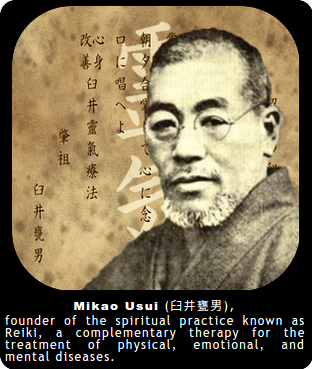WHAT IS REIKI?
Reiki is a drug-free, non-invasive method of healing that has proven effective in the treatment of all disease.
Reiki (pronounced "ray key") is a Japanese word meaning intelligent spiritually guided life-force energy.
Reiki is an important holistic method of healing used to restore and balance energy within the body. When used therapeutically, Reiki supports the body's natural ability to heal itself.
Reiki is a technique and an art of inducing deep relaxation and reducing stress.
Recognition of Reiki's ability to enhance the overall effectiveness of other body work and healing techniques is global. The use of therapeutic Reiki with traditional allopathic medicine in the treatment of illness and injury is commonplace in progressive communities world wide.
Reiki is not based on any belief, system of beliefs or suggestion. Practitioners are followers of many religious traditions. Although some integrate Reiki into their existing religious beliefs, Reiki is not a religion, doctrine, or dogma. Reiki is grounded in the principle of compassionate action, which is common to all religious, humanist, and ethical traditions.
Contemporary Reiki practice is traced to early 20th-Century Japan. The first Reiki Master was Mikau Usu.

During the early 1920s, Master Usui did a 21-day practice on Mount Kurama-yama called "discipline of prayer and fasting," and it was during these 21 days that Usui developed the natural healing method he called Reiki.

